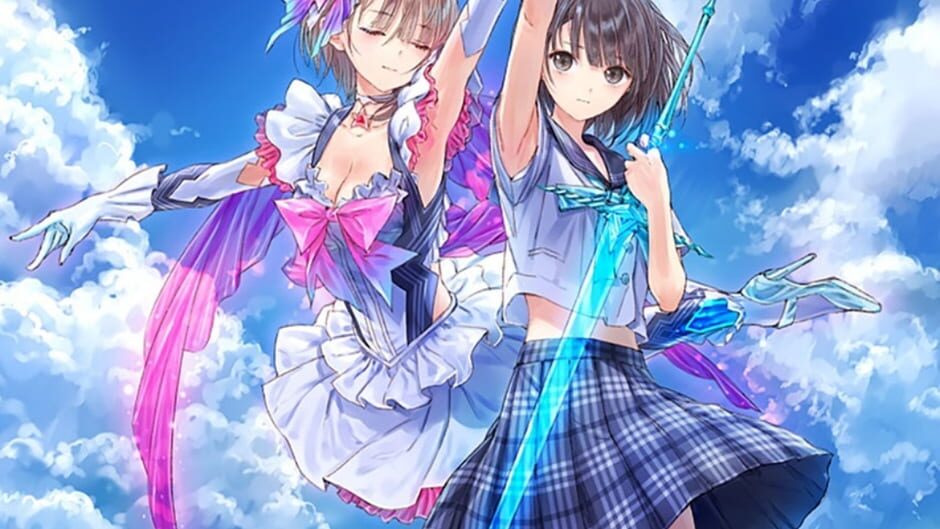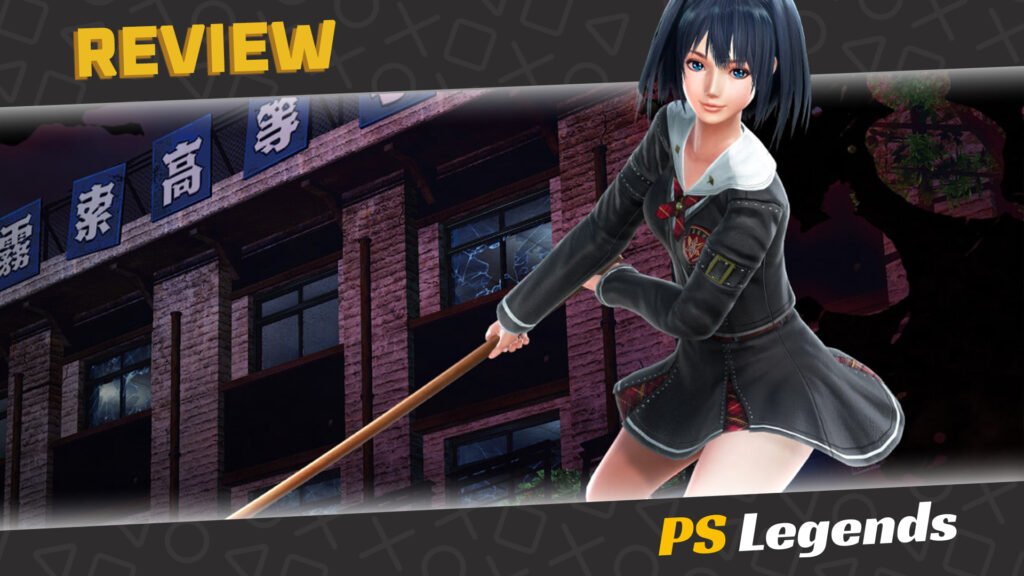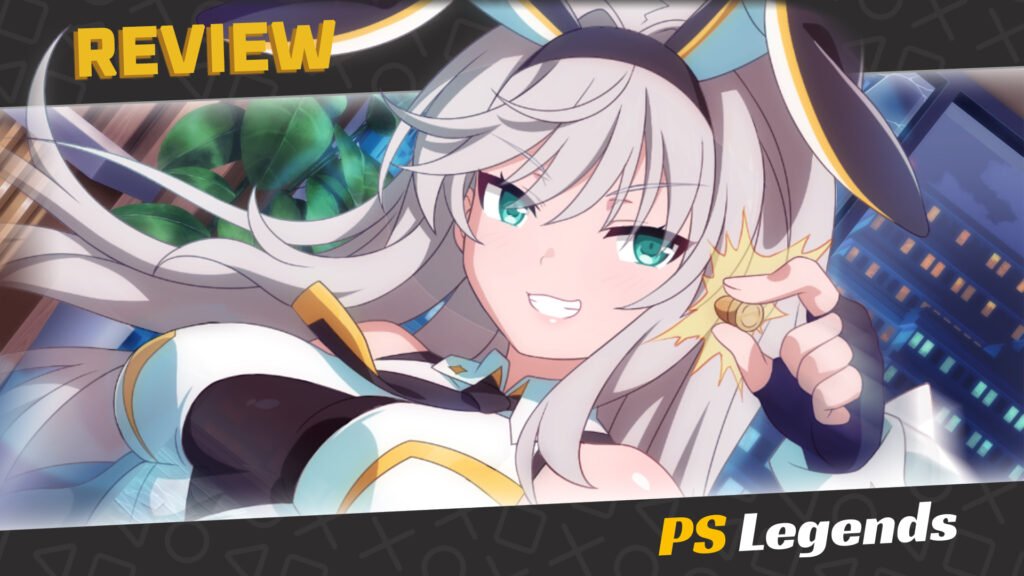When you take inspiration from the Persona series and sprinkle in a generous helping of ’80s magical anime girl themes (think Sailor Moon if you’re struggling) you get the JRPG spectacle that is Blue Reflection. It’s a game I’ve had the pleasure of revisiting many times, not only to recommend, but to advise on its unique themes.
Introduction
If you’re from one of those US states where an age of consent of anything less than 18 is inexcusable, maybe raised with strict religious doctrines or those who take offence to nudity or LGBT+ themes, then Blue Reflection is likely not the game for you. I’d even suggest avoiding it altogether since it has a habit of angering up the blood. That’s all the warning you’ll be getting from me.
You see, Blue Reflection is a turn-based JRPG with a twist. It features Japanese high-school girls in real-life situations which contain frequent partial nudity and mildly sexually suggestive themes. This is entirely intentional since the game aims to paint a realistic picture of Japanese all-girl high-school dating. This will come up from time to time during this review.
The content on show in the game is entirely respective of Japan’s culture and youth demographic and makes no apologies for being as such. This content could also be considered highly fan-service based, and you’d be right in theory, but there’s much more to it than that. It’s a game that flaunts authenticity at every opportunity.
Don’t be intimidated. Supporters of Free Love, LGBT+ content and teen expressionism, as well as those respective of any and all differences in cultural diversity will undoubtedly see Blue Reflection’s beauty. And what a beauty it is. For those in the know, Blue Reflection is one of those epic experiences that you’re proud to show off in your collection.
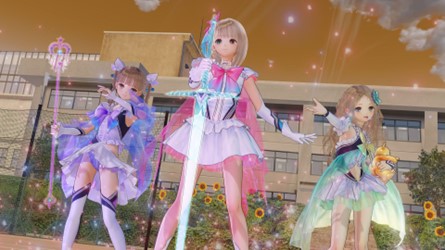
Story
It’s a beautifully intricate and colourful JRPG from Gust, the same guys behind the Atelier series. I admit to not being a fan of the Atelier series as I struggle to relate to the protagonists; usually girls in their mid-to-late teens who seem to have no concept of school and neglect their social development by focusing on their careers, often very recklessly, and with a hefty amount of freeloading too.
Blue Reflection is the polar opposite of this. Integrating into school and forming bonds with your classmates is key here. It also tackles real-life issues such as body confidence, sexual awakening, dating and peer pressure. It’s much closer to Persona in terms of gameplay progression without being quite so unnecessarily padded out.
You play as 15-year-old Hinako as she returns to school after recovering from a major knee injury a year previously as she comes to terms with the fact she will never be the ballet dancer she aspired to be. She also finds herself demoted from her ‘special’ class to standard classes and her friends have largely forgotten about her.
With Hinako desperately trying to rebuild relationships with her classmates, she is chosen by two mysterious new students, Yuzu and Lime, to become a ‘Reflector’; a magical girl with the power to enter the ‘Common’; the collective consciousness of her friends and help them with their own issues, defeat the fantastical creatures within, and increase her powers by strengthening bonds with others.
Helping your friends overcome their issues by entering the Common to capture emotional fragments may calm the situation at hand, but this proves to be a double-edged sword, as Hinako’s friends enter rampant states of breakdown over other issues as the Common is interfered with. As Hinako grows more powerful, she risks drawing the attention of the world’s rival gods, and maybe even the very deity who gave her the power of a Reflector in the first place.
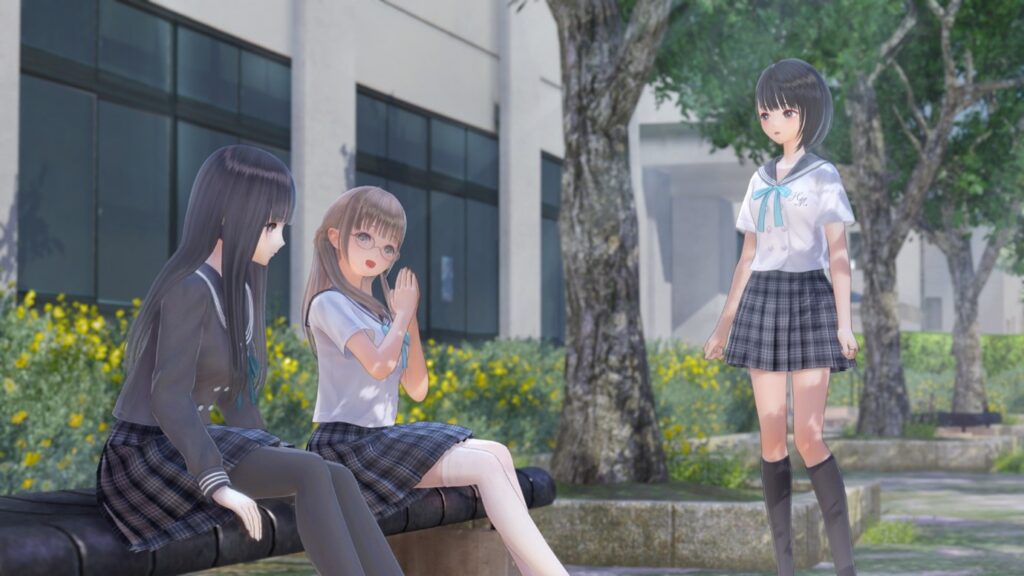
Gameplay
Hinako, Yuzu and Lime transform into their magical counterparts when entering the Common, allowing them to put up fierce resistance against enemies. Battles are very simple, classic, turn-based affairs. Select your available skills from each character’s specific menu to attack, heal or support. New skills and upgrades can be unlocked with progression.
Your party don’t simply level-up through combat by collecting experience. The girls must interact with their peers in the real world to strengthen their bonds which grants new powers and abilities. Spend time with your friends, help them out and go on dates and Hinako will be a force to be reckoned with. Your expanding circle of friends will also help you fight bosses who occasionally breach into the real world too.
Hinako can also interact with her friends by texting from her phone. These additional conversations unlock additional scenarios. The phone can also be used to play a mini-game, which triggered a minor complaint of mine. For the platinum trophy, the game requires you to raise a virtual pet to max levels and then reduce all of its stats back to 1 for a chance unlock its hidden final form.
The actions you can perform to adjust these stats are entirely random and, even if successful, there’s still no guarantee your pet will evolve for you. It all comes down to a lot of luck; luck that didn’t seem to kick in for me until 3 years after finishing the main game 100% and thus all other trophies. 20+ retries of this mini-game later and the trophy finally pops.
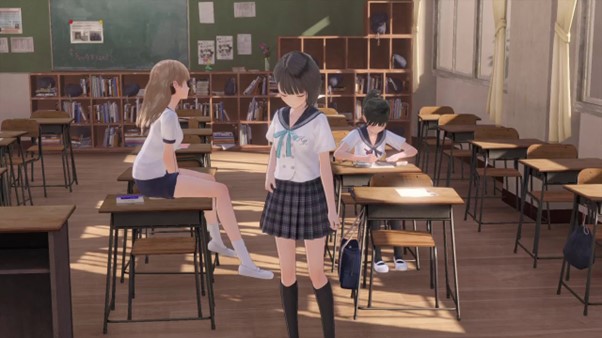
Graphics/Sound
Gust really ups its game with the visuals, taking their usual 3D cel-shaded models and adding that extra level of shimmer and shine. Hair and eyes will sparkle in vibrant rays of sunlight. The Common also brings with it a unique switch in the colour palette, with the scenery and costumes dominated by beautiful greens, blues, pinks and purples.
The violin-heavy tracks integrate well with the rest of the orchestra to produce a soundtrack that feels unique and adapts well to the on-screen drama, with slow, calming melodies as you wander around school and anarchic battle themes to get the adrenaline flowing. The game is dubbed in Japanese only, though the cutscenes are short enough that this never becomes overwhelming.
Replayability
Like a good JRPG should be, Blue Reflection is designed to allow the player to complete everything in a single playthrough. Nothing is really missable and so trophy hunters won’t need an extra playthrough to tie up loose ends. Complete every date and character upgrade at your leisure.
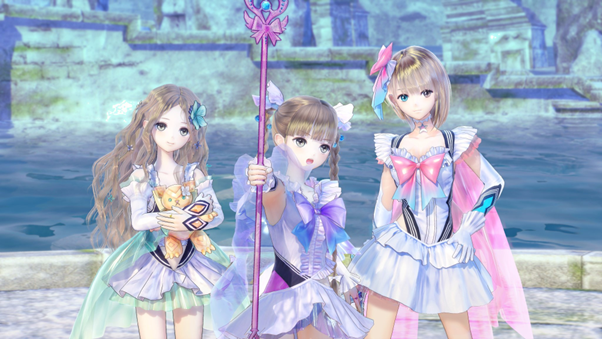
Conclusion
What sets Blue Reflection apart from other RPGs is the way it handles real issues for teenage girls. For example, the girls will shower together and become curious about each other’s bodies. They’ll begin to question their relationships such as whether they’re friends or something more, and yes, they’ll question their sexuality.
The partial nudity in the game is frequent yet tastefully done and never feels inappropriate despite the young cast, yet this can be misinterpreted. For example, Hinako’s evening bath scene rounds out each day where she reflects on her activities, whilst players of PC hentai dating sims will no doubt find this scenario familiar and momentarily wonder where the ‘press X to masturbate’ button is. Sorry, that’s not Blue Reflection’s style.
It’s a game that actually encourages the cast (and even the player) to enjoy their youth, explore their bodies and sexuality, and accept yourself and others. This isn’t simply fan-service. It’s expressionism in its most beautiful form. Whether you choose to accept her or not, Hinako is a girl who wants to part of your life, both in body and soul. It’s all about making a meaningful connection. Just because it’s controversial doesn’t mean it’s any less of an incredible JRPG experience.
Joys
- Simple interface
- Outstanding modern storytelling
- Gorgeous visuals
Cons
- Fiddly mini-game
- Controversial themes
